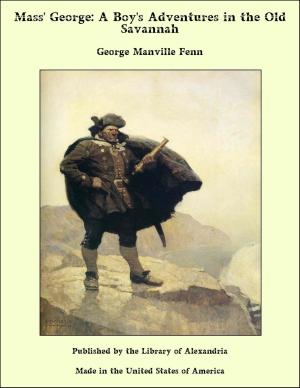Some Principles of Frontier Mountain Warfare
Nonfiction, Religion & Spirituality, New Age, History, Fiction & Literature| Author: | Major-General Sir Wilkinson Dent Bird | ISBN: | 9781465617088 |
| Publisher: | Library of Alexandria | Publication: | March 8, 2015 |
| Imprint: | Language: | English |
| Author: | Major-General Sir Wilkinson Dent Bird |
| ISBN: | 9781465617088 |
| Publisher: | Library of Alexandria |
| Publication: | March 8, 2015 |
| Imprint: | |
| Language: | English |
The strength and organisation of a force destined to undertake operations against the transborder clans of the Indian frontier is naturally conditioned by the physical features of the area, by its fertility, and by the numbers, character, organisation, and armament of its inhabitants. It has been truly said that in war every available man should be employed, for one can never be too strong, but this aphorism is always qualified by the number of men that can be fed in the district which is to form the seat of war. The problem of the numbers to be used against the Pathan tribes is, therefore, by no means easy of solution, for, as a great French King said of Spain, in mountainous countries possessing, as does the Indian borderland, few natural resources, but inhabited by a hardy though scanty population, large armies risk starvation, small are in danger of defeat. The tribesmen of the North West Frontier are brave, and inured to fatigue and hardship, a considerable number have been trained in our Indian army, and these have some knowledge of tactics, and acquaintance with British methods. The clansmen possess no artillery, but in other respects are fairly well armed, and owing to the cheap sale of rifles and ammunition in Afghanistan, are daily becoming more formidable in this respect. They suffer, however, from two grave military faults, lack of discipline and cohesion, and at present would, it is believed, be unable to mass against any one of several columns invading their fastnesses. They would, more probably, be content merely to defend their own valleys and homesteads, rather than attempt to defeat, in detail, the divided forces of an invader operating from exterior lines. It would seem, then, that in a campaign in the Indian borderland, British troops would be justified in undertaking a concentric invasion from several localities.
The strength and organisation of a force destined to undertake operations against the transborder clans of the Indian frontier is naturally conditioned by the physical features of the area, by its fertility, and by the numbers, character, organisation, and armament of its inhabitants. It has been truly said that in war every available man should be employed, for one can never be too strong, but this aphorism is always qualified by the number of men that can be fed in the district which is to form the seat of war. The problem of the numbers to be used against the Pathan tribes is, therefore, by no means easy of solution, for, as a great French King said of Spain, in mountainous countries possessing, as does the Indian borderland, few natural resources, but inhabited by a hardy though scanty population, large armies risk starvation, small are in danger of defeat. The tribesmen of the North West Frontier are brave, and inured to fatigue and hardship, a considerable number have been trained in our Indian army, and these have some knowledge of tactics, and acquaintance with British methods. The clansmen possess no artillery, but in other respects are fairly well armed, and owing to the cheap sale of rifles and ammunition in Afghanistan, are daily becoming more formidable in this respect. They suffer, however, from two grave military faults, lack of discipline and cohesion, and at present would, it is believed, be unable to mass against any one of several columns invading their fastnesses. They would, more probably, be content merely to defend their own valleys and homesteads, rather than attempt to defeat, in detail, the divided forces of an invader operating from exterior lines. It would seem, then, that in a campaign in the Indian borderland, British troops would be justified in undertaking a concentric invasion from several localities.















